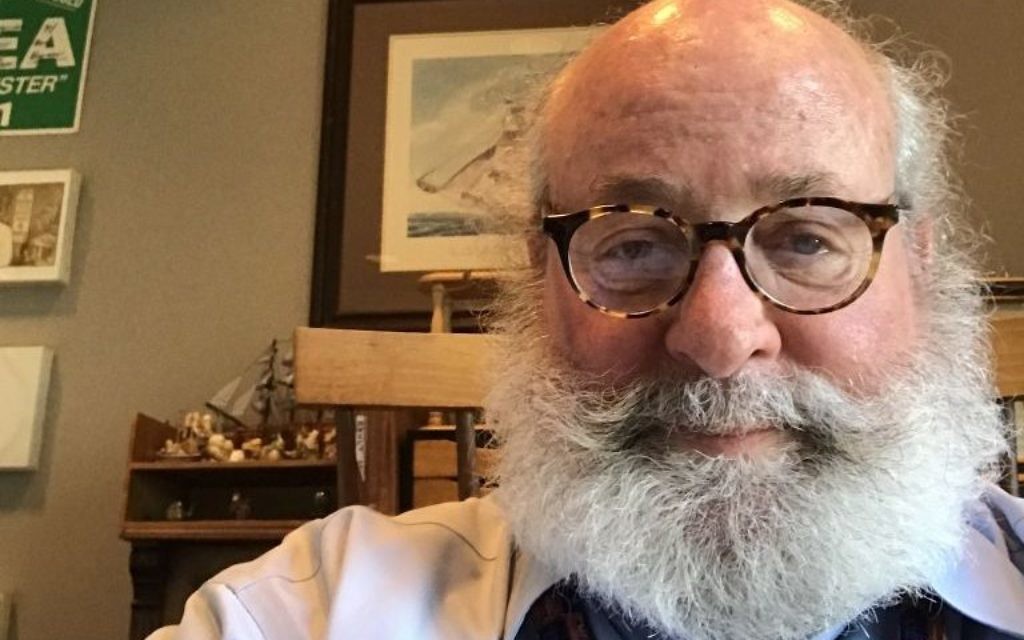Klan to Strip Clubs, This Lawyer Has Argued It All
Alan Begner has championed the First Amendment in a four-decade career in Atlanta.
I ran into Alan Begner at a 50-year Grady High School reunion where I was a guest, not an alumna. Alan grew up in the ’50s and ’60s in Morningside as a member of Ahavath Achim Synagogue. Now he’s a successful trial lawyer whose name is sometimes associated with defending underworld figures and arguing strip-club-type First Amendment cases.
He’s a charming character who has kept his hands clean in what is not a lily-white business. After seeing the move “Marshall,” in which Jewish lawyer Sam Friedman plays alongside Thurgood Marshall in NAACP cases, I thought Begner would be a local version of edgy legal work.
“After all, even MLK had a Jewish lawyer,” Begner said.
Get The AJT Newsletter by email and never miss our top stories Free Sign Up
Hear how he charmed judges and juries through the decades.
Jaffe: Have you always been a hippie? Why do some criminal attorneys go for a wild look?
Begner: I originally started the ponytail for practical reasons … then the full beard and all became my trademark. In 1972, when I applied to go to law school, I was a hippie and had a hard time getting admitted. … I showed up for interviews in a leather sportscoat, vest, a bowtie (laughing). When I graduated from law school, the code was that lawyers can’t win trials with facial hair, ponytails or bowties. Wrong!

Jaffe: How did you fall into the First Amendment type of practice?
Begner: I paid my dues starving for a few years taking any kind of case. In 1982, I was appointed to represent a Communist revolutionary who took over a general’s office at Fort McPherson and declared he had taken over to protest the planning of World War III. I got an acquittal! My mother started crying when I told her I had taken the case. “What have you done? You’ll ruin your career!” From there, I went on to represent civil rights leader Hosea Williams, the Klan, civil disobedients and protesters of all kinds, strip clubs, accused racketeers, Gypsies and video machine gambling cases.
Jaffe: What makes Atlanta unique in naughty businesses?
Begner: Our adult clubs are famous for allowing nude dancing and alcohol service. It is not easy to get a license. They are very valuable. Many cities and counties are constantly changing the rules. We have gone from 45 to less than 30 clubs. They continuously struggle against government overreach. Nude dancing is protected expression as long as the participants are over 18, so some local governments take away the alcohol.
Jaffe: Describe an example of government overreach that you fought.
Begner: In 2008, the city of Atlanta enacted an ordinance that prohibited dancers in adult clubs from working until they turned 21 (vs. 18). The Georgia Supreme Court struck the law in 2009, ruling the state law allowed dancers to work at 18. As a result, hundreds of young adults went back to work.
Jaffe: Your wife, Cory, is your law partner. How does that work?
Begner: She was an English major in college and graduated from Georgia State Law School. She does the research, drafts the pleadings and writes the briefs. We talk about the issues and challenges to the laws. I usually do the oral arguments. We have been together since 10th grade and married 46 years.
Jaffe: What’s your most unusual case?
Begner: A customer sued my client, the Gold Club, alleging that the club had employed a dancer who was a vampire. The dancer had bitten him, and it had destroyed his marriage. The jury could not stop laughing.

Jaffe: Talking to you, I feel that you explain complicated things very plainly and that you appear to be mild and gentle despite the subject matter. Is this the key to your success?
Begner: I’d say the key is being prepared and pinpointing the one unique thing that may convince the judge or jury to decide the case my way. I call it “knowing what facts will be controlling.” I’m not a flashy performer. I like to stand behind a podium, while some other lawyers prance and meander about the courtroom.
Jaffe: You are writing a book to tell all?
Begner: It’s a novel based upon a true story about the confluence of three events in Atlanta in 1985 and 1986: the conviction of Wayne Williams in the “missing and murdered children” cases, which allowed Atlanta to reclaim its reputation as a good place for families to visit; a very famous murder trial in 1987 featuring the Gambino crime family (I defended the alleged Gambino defendant); and how the murder case prosecutor tried to link Atlanta’s adult stores with the murders.
Jaffe: Do you ever relax?
Begner: Years ago, I worked 60 hours a week. … Now down to 40 or less. Cory and I collect American folk art and American Indian pottery. I collect old wooden 12-inch rulers. The bottom line is I have been fortunate to defend common folks against government overreaching and to have Cory stand with me in this fight. My mother didn’t need to worry about ruining my career.





comments